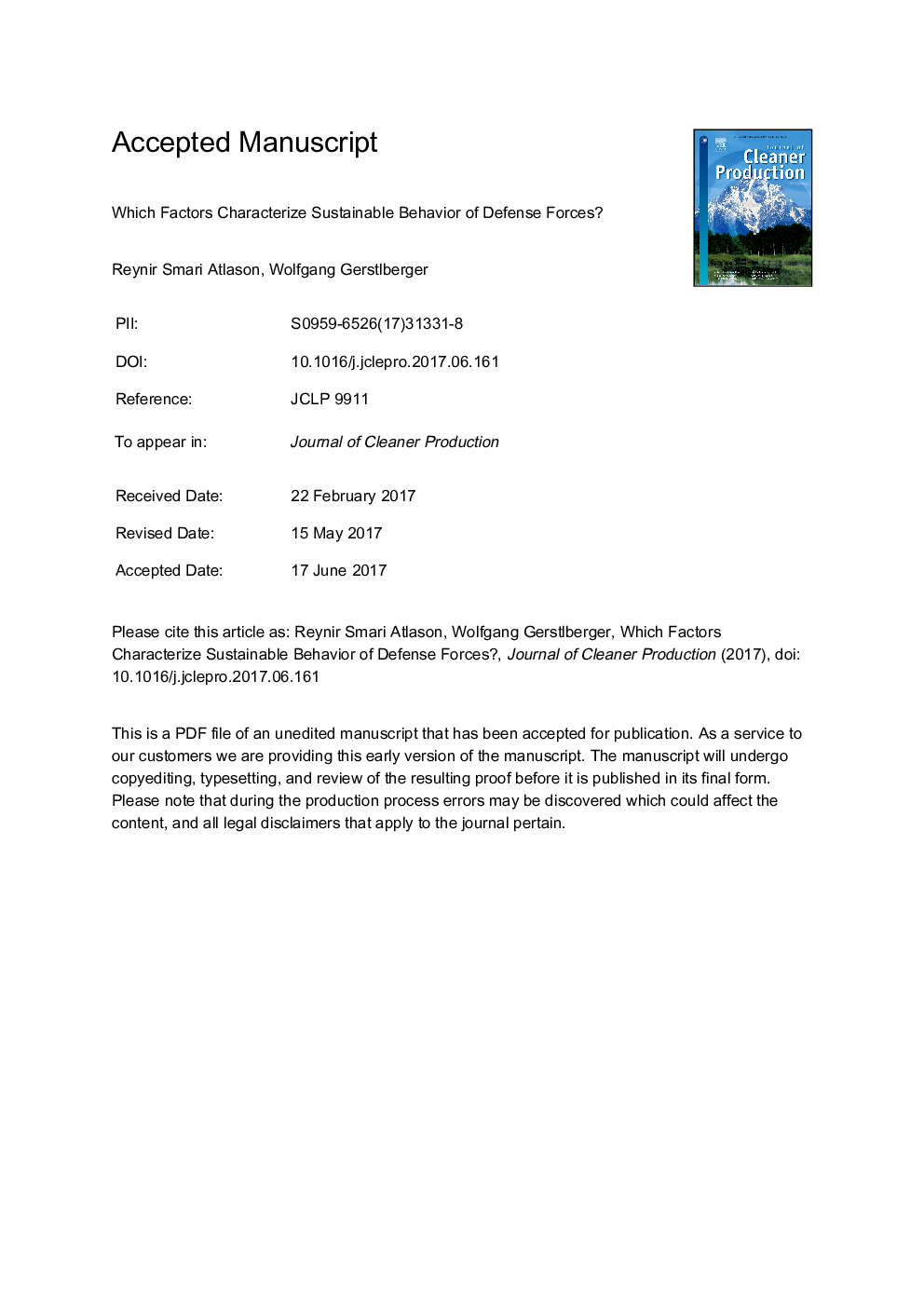| Article ID | Journal | Published Year | Pages | File Type |
|---|---|---|---|---|
| 5480439 | Journal of Cleaner Production | 2017 | 26 Pages |
Abstract
Defense agencies are increasingly identifying the benefits of environmentally benign solutions on multiple types of operations. Energy use, material use, and environmental damage are factors that influence military operations in both the short and the long term. In this paper, we examine the behavior of 81 military forces with regard to Corporate Social Responsibility (CSR) and sustainability reporting. Furthermore, the characteristics of militaries with a CSR/sustainability strategy are identified. By using hierarchical cluster analysis and exploratory factor analysis, we locate characteristics of militaries with medium or strong connections to sustainable behavior. The results of the analysis demonstrate which militaries are likely to engage in improvements with regards to CSR and sustainability, particularly in relation to the environment. The findings of this paper demonstrate which militaries have a CSR or sustainability strategy and what the perceived benefits of such strategies are. Furthermore, we have identified militaries that are likely to implement such strategies in the future. Our findings indicate that countries with a strong regulatory environment, high Gross Domestic Product (GDP) per capita, and medium to low military expenditures per capita seem to favor CSR and sustainability awareness within their militaries. For those countries, military CSR and sustainability strategies can demonstrate win-win situations, mainly due to lower energy and material costs on the one hand and reduced environmental impact on the other. However, countries with high military expenditures per capita but low GDP per capita and a loose regulatory environment seem to lack any CSR or sustainability commitment within their militaries.
Related Topics
Physical Sciences and Engineering
Energy
Renewable Energy, Sustainability and the Environment
Authors
Reynir Smari Atlason, Wolfgang Gerstlberger,
